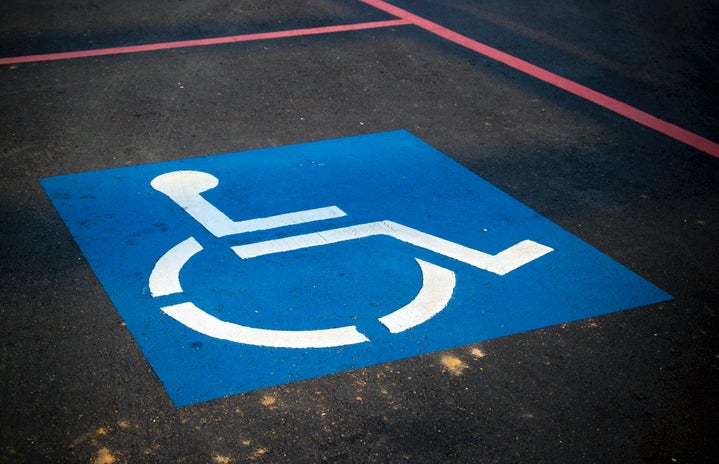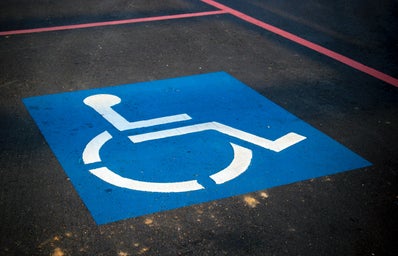Abled does not mean enabled. Disabled does not mean less abled
Khang Kijarro Nguyen
A place where people are free to learn, explore new challenges, and make acquaintances – educational institutions are vibrant spaces where such experiences occur for students and hence, making them inclusive becomes an utmost priority for universities. The University of Delhi upholds high expectations of inspirational learning from all over India and abroad. Over the years, it has experienced advocacy for disability rights by its student community. This is reflected in the University’s attempt to improve campus facilities and knowledge distribution mechanisms for students with disabilities.
The campus reiterates its commitment to sensitizing its environment to the challenges of people with disabilities. The statement also emphasizes its goal of removing physical barriers to education and making it more accessible through tuition waivers, scholarships, special equipment, counseling, and providing skilled readers and writers. This policy is based on the principles of the University Grants Commission (UGC), the People with Disabilities Act of 1995, and the Rights of Persons with Disabilities Act (RPwD) of 2016, ensuring inclusion and preventing discrimination. It aims to promote equal opportunity, protect students’ rights, foster a positive mindset, involve them in college life, provide adequate medical care, create a barrier-free environment, and raise awareness. It provides an enabling environment with assistive technologies, collaboration with the National Service Scheme (NSS)- a Government of India’s public service program, free digital access, and regular monitoring of students’ progress.
Hence, understanding the implications of these policies and learning about the impediments faced by such students becomes highly important to comprehend accessibility and inclusion in university spaces. Disability awareness can challenge misconceptions and stereotypes, leading to more affirmative attitudes and behaviors. Hence, it is crucial to understand the perspectives of these students to initiate effective measures to improve college and university campuses.
Recently, I visited the Enabling Unit of my college, Indraprastha College for Women (IPCW). This noble initiative provides a space for students with disabilities to come together to socialize and participate in extracurricular activities. Additionally, the infrastructure fosters a meaningful academic interchange, which helps these students to turn obstacles into possibilities. Before approaching, I was apprehensive of what the response would be, but after interacting with the students, I felt it necessary to document their experiences and highlight the imperativeness of colleges to make their campuses inclusive.
Nasreen, an undergraduate student pursuing Bachelor of Arts (B.A) program, shared about her experience as a visually impaired student on campus. She described her overall experience as positive. “In the beginning, I used to face problems, but now, I feel good, ” Nasreen tells Her Campus, reflecting on her transition period from school to college. She also talked about the problems she faced in her studies due to the unavailability of certain books in the library. “Some things are available, some are not,” she says. Further, her classmates assist her in finding more resources on the internet to study.
Hira, an undergraduate student of Hindi shared, “Laptop availability has temporarily been halted on campus. This has created issues in taking notes properly.” Braille is a tactile writing system for visually impaired individuals, allowing them to read by touching. She recommended that such braille books should be more widely available and accessible for students like her. She also suggested that the room numbers in the timetable sheet be provided in braille chips as the elevated representations of the alphabet, numbers, and punctuation marks would enable them to understand it better. It will also faciliate them to easily navigate the classrooms on campus.
Earlier, there used to be a bus service for people with disabilities, but now they have to rely on Delhi Transport Corporation (DTC) bus services and metro instead. While using public transportation, there aren’t any wheelchair-accessible ramps, hearing announcements, or modest signage. Most of the time, it becomes difficult to travel by bus because of the risk of getting lost or boarding the wrong bus. On the other hand, the restoration of the University Special (U-Special) bus service has been stopped since the pandemic. Previously, it used to be a go-to service for college students traveling around the city of Delhi.
The Extra Curricular Activity (ECA) societies and the National Service Scheme (NSS) program have initiatives to help student with disabilities with their assignments and tests. A space like the Equal Opportunity Cell (EOC) and Enabling Unit (EU) help create better college experiences to make education inclusive and accessible to all.
The interaction with the students was an eye-opener to their realities. I believe the incorporation of their feedback from time to time will facilitate universities to better understand their students and improve the facilities to create a friendly environment for them. By addressing their problems early on, higher-level educational institutions can promote transparency which in turn provides them with the opportunity to effectively implement the necessary mechanisms to improve campus facilities. Active consideration of the grievances of these students can lead universities and colleges to focus on issues impedimenting them, creating better learning opportunities and removing any communication barriers.


